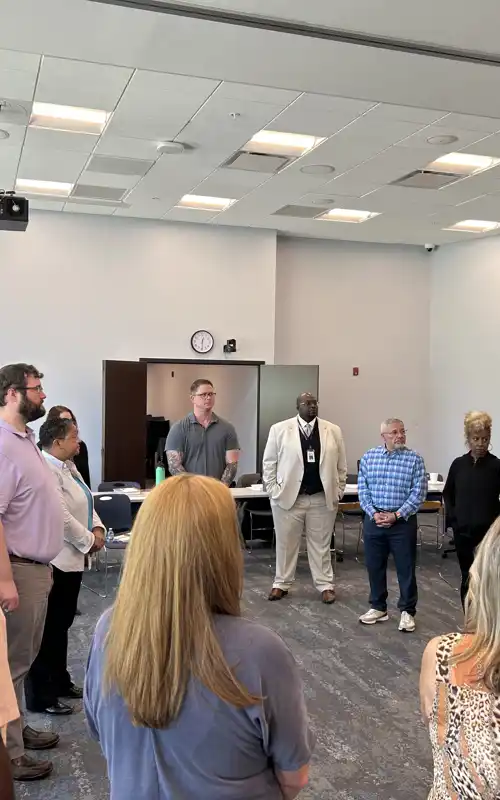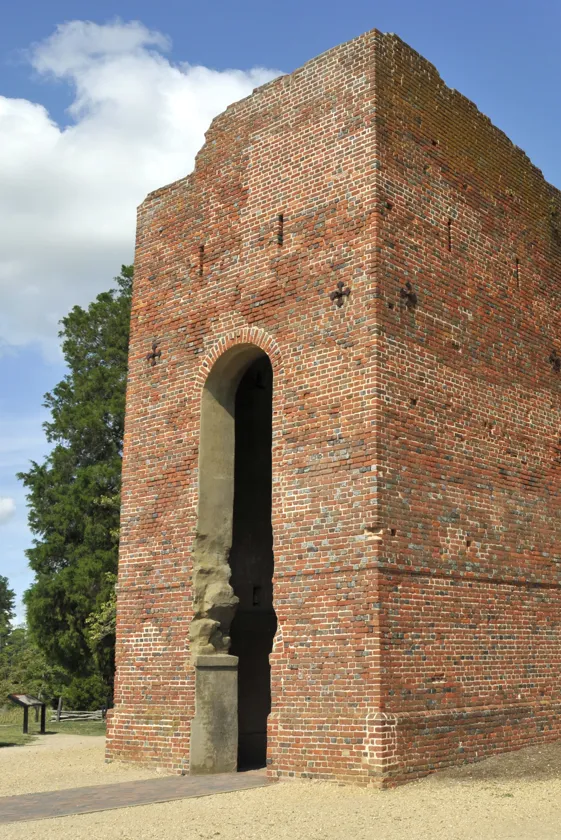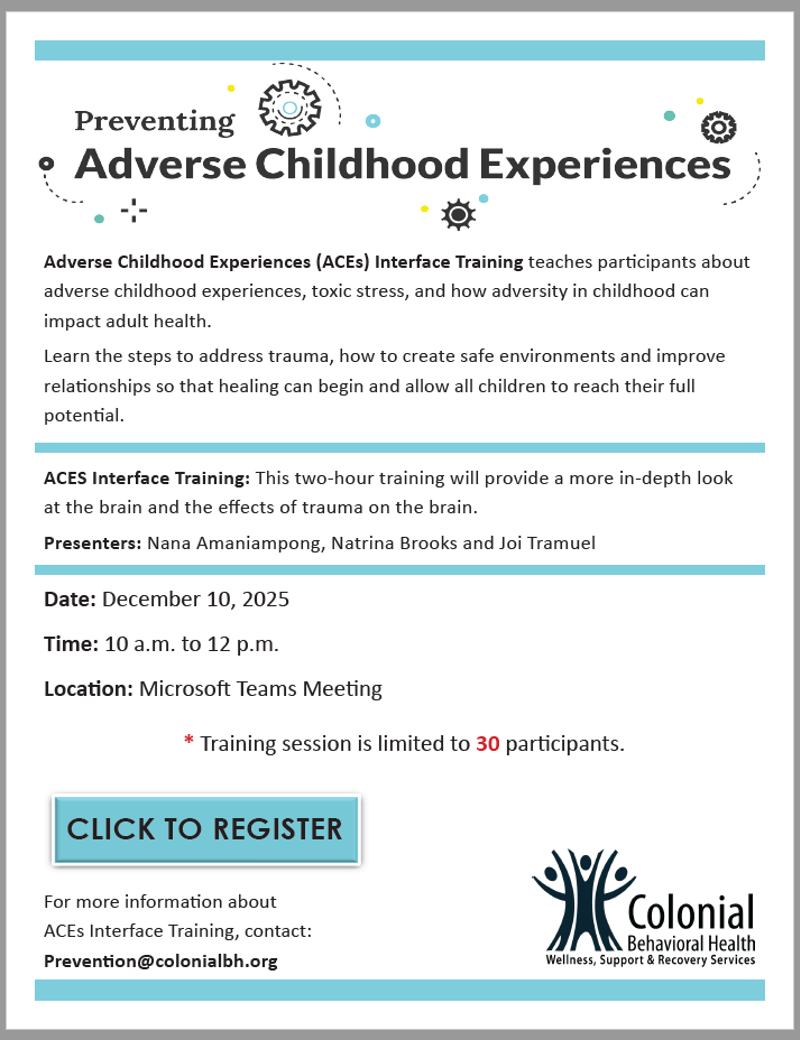CRI COURSE 2: TRAUMA-SUPPORTIVE
9:00 AM This 6-hour course covers the science of resiliency and shares promising strategies to build culturally and contextually resilient individuals and communities. (You must complete Course 1 in order to take Course 2.)
Course 2 describes training on topics that teach the knowledge and skills required by individuals who have contact with those who may be adversely affected by trauma and toxic stress, whether or not the trauma is known. These topics include resilience-based practices with universal application, such as classrooms, offices, or other places the general public may congregate. Topics in this category focus on prevention and teach a variety of strategies to address the often-hidden effects of trauma and toxic stress by fostering resilience within the individual and the larger community.
Lunch is on your own. Registration closes two days prior to training date.
Please Note: You must be present for 100% of the class to receive your certification.
There currently is no cost per participant. Training materials and facilitation are provided thanks to the generous support of the Virginia Department of Behavioral Health and Developmental Services (DBHDS).
Space is limited to 30 participants. (A minimum of 10 registrations is needed to host the course.)
Demographics are for grant reporting purposes.




